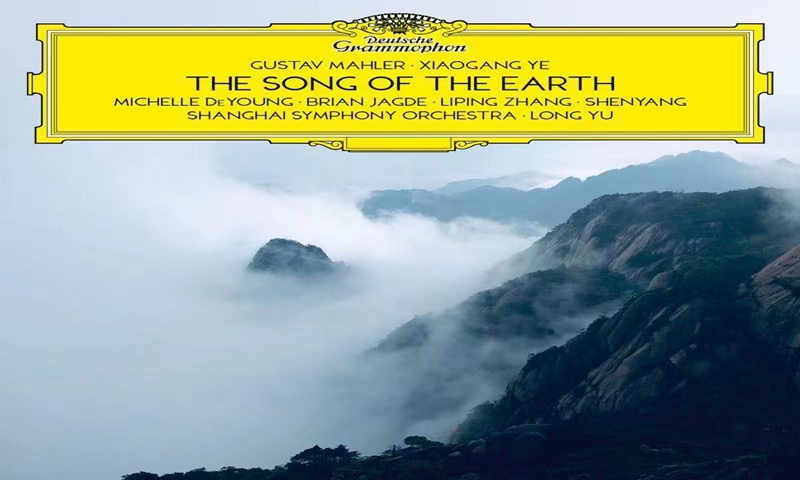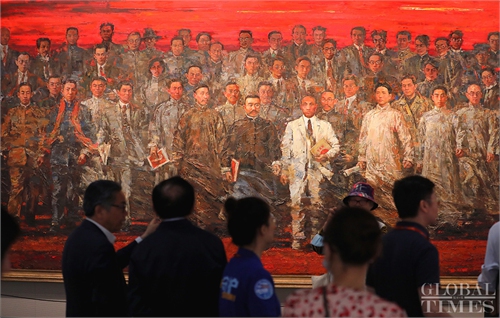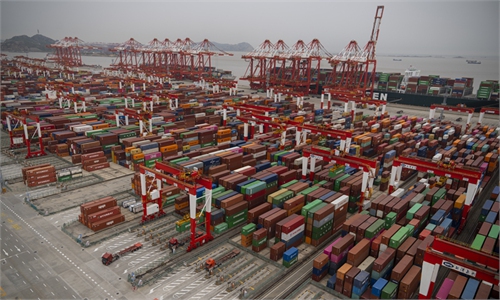
Cover of new album the Song of the Earth. Photo: Courtesy of Shanghai Symphony Orchestra
Deutsche Grammophon (DG) has recently released a new international version of the world-famous symphonic song-cycle The Song of the Earth (Das Lied von der Erde) inspired by centuries-old Chinese poetry. This new album, produced by both Chinese and Western musicians, seeks to unite the two cultures, the album's conductor revealed.
The album, released by classical record company DG on Friday, is the second album made by DG, high-profile Chinese conductor Yu Long and the Shanghai Symphony Orchestra as part of an exclusive contract signed in 2018.
DG announced its exclusive contract with Yu and the Shanghai Symphony Orchestra in 2018, making the latter two the first Chinese conductor and Chinese orchestra to sign up with the company. They released their first album in the partnership, featuring both Chinese and Russian repertoires, to mark the orchestra's 140th anniversary in 2019.
The Song of the Earth, originally produced by Austro-Bohemian Romantic composer Gustav Mahler in 1908-09, was remade into the second album through the joint efforts of Yu, the Shanghai Symphony Orchestra and soloists Michelle DeYoung, Brian Jagde, Zhang Liping and Shen Yang.
The album contains two versions of The Song of the Earth, one that remains true to the original and the other recomposed version from Chinese composer Ye Xiaogang.
Mahler was inspired to write the symphony by German translations of seven ancient Chinese poems from great Tang Dynasty (618-907) poets including Li Bai, Meng Haoran, Qian Qi, and Wang Wei.
In 2005, Ye, at the invitation of Yu, rearranged the order of the texts in Chinese and recomposed the song-cycle with a more optimistic take.
"Mahler's version is full of disillusionment, but my work expresses a middle-aged man remaining ambitious about the world," said Ye, talking about the difference between his version and Mahler's.
According to Ye, The Song of the Earth gave Western audiences an idea of the context and vocal effect of Chinese poetry. However, although the music is without comparison, it cannot reflect the full beauty and artistic conception of the original Chinese poems because the German text is based on translations from other languages, added Ye.
The Mahler version is performed by US mezzo soprano Michelle DeYoung and US tenor Brian Jagde in German, while Ye's version is sung by Chinese-Canadian soprano Zhang Liping and Chinese baritone Shen Yang in Chinese.
"Most people are so immersed in their own lives, not trying to understand the culture of other societies… but by comparing these two works people can see the double picture - how Europeans feel about love, pleasure and death, and how the Chinese feel about the same things," said Yu.
Global Times



